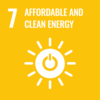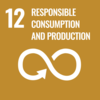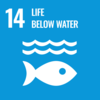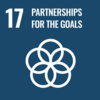Offshore renewable developments will expand in the coming years as we transition to an era of zero-carbon energy. A team of researchers from the University of Aberdeen’s Lighthouse Field Station are dedicated to ensuring that renewable technology can be deployed to co-exist safely with marine wildlife populations.
From decades of research into marine animal ecology and by working closely with industry engineers, regulators, government and other stakeholders, the team have co-developed guidance that both safeguards wildlife populations and enables industry efficiency by reducing financial and time costs for windfarm developments. The frameworks co-produced from robust data are evaluated in the field, and have underpinned construction nationally, leading to scale-up and roll-out internationally.
The Lighthouse team are a beacon for sustainability research that directly tackles the immediate challenges of energy transition. The team embodies interdisciplinarity; celebrates women in science; and works actively across sectors to enable real change.
Annual carbon savings achieved with the initiative:
The judges were impressed by the application of detailed observation and research, and clear collaboration to support a growing renewables industry to protect marine species.
A sound application and a project with wider application globally.
“Our Aberdeen 2040 strategy places sustainability at the heart of our institutional mission. Winning this Green Gown award for research impact, recognises not only the academics involved but also colleagues across the University working to support research that directly addresses key global challenges and the UN’s Sustainable Development Goals.”
Professor George Boyne, Principal and Vice Chancellor



